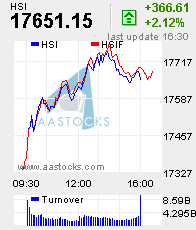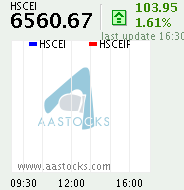
Markets plunge after US plan announcement ---
The Dow stock index plunged 3.5 percent immediately after the US Treasury Secretary, Mr. Timothy Geithner's announcement. There was a similar reaction in European stock exchanges that London's FTSE 100 index shed 2.19%, while in Paris the CAC 40 lost 3.64 percent, as did the Frankfurt Dax.
The US Senate has approved an 838-billion dollar economic stimulus plan. In addition, the US Treasury Secretary Mr. Timothy Geithner has unveiled a three-part program to stabilize the financial system. He said "the government would strengthen the financial system to get the economy back on track. A key element would be a public-private investment fund, starting with 500-billion dollars, to help cleanse the banking system of toxic real-estate assets. The second part would include additional capital injections into banks. The third element would see Treasury and the Federal Reserve expand a program to boost lending for mortgages and other consumer and business loans to up to one trillion dollars. "
The US central bank said "it was preparing a substantial expansion of credit flowing. "
However, the general economic outlook is still pessimistic in the midst of US carmaker General Motors has confirmed to cut 10,000 jobs by end of 2009. Britain, the United States and all European countries are in serious economic recession as the International Monetary Fund predicted that the UK economy would shrink 2.8%. Consumer spending falls continuously and economic contraction prevails as a result of a perilous vicious cycle.
Even U.S. Treasury Secretary Timothy Geithner announced program to save the banking industry through the acquisition of the banks' toxic assets and lending for mortgages to prevent the foreclosure of the property owners, it seems helpless to revive the downturning economy.
I think the deficit budgetary policy would lead to endless debts for the government borrowing money from the public and other nations, esp. China. It will also stimulate market interest rate hike in response to the heavy burden of interest payments on long-term debts and significantly boosted government spending. That is the so-called "crowding out effect" as described in most macroeconomics textbooks. Inevitably, the private sector would be suppressed and drags back the economy. The whole economy is by no way to be corrected through automatic recovery itself. Thus, it will be put on its right track at the expense of price stability, i.e. inflation, by pouring large amount of money supply to the economy by the government.
A loose monetary policy reinforcing with the fiscal policy seems to be the possible solution. The consequence being that the soaring rate of inflation cannot be avoided. The evil of inflation and the benefit of economic revival should be in a trade off. This is really scary. What a terrible senario is ahead!
**Crowding Out Effect ---- The displacement of private spending by government expenditure financed by borrowing. When a government borrows heavily, it leads to higher price (interest rate) for loanable funds. The private sector, which is usually sensitive to change in interest rate, will likely reduce investment. That is the investment being crowded out. The rising interest rates will curb individual consumption too.
The weakening of fixed investment and other interest-sensitive expenditure counteract the expansionary effect of government deficits to a certain extent. However, more importantly, a fall in private fixed investment could hurt long-term economic growth.
However, this crowding-out effect is moderated by the fact that government spending expands the market for private-sector products through the multiplier and thus stimulates – or "crowds in" – fixed investment.
Crowding out, in principle, can be avoided if the deficit is financed by simply printing money, but this carries concerns of accelerating inflation.
 The China South Locomotive and Rolling Stock Industry (Group) Corp. (CSR) (1766) has participated in the ITER project--- an international experimental fusion reactor project by investing about 10 billion Yen RMB.
The China South Locomotive and Rolling Stock Industry (Group) Corp. (CSR) (1766) has participated in the ITER project--- an international experimental fusion reactor project by investing about 10 billion Yen RMB.












